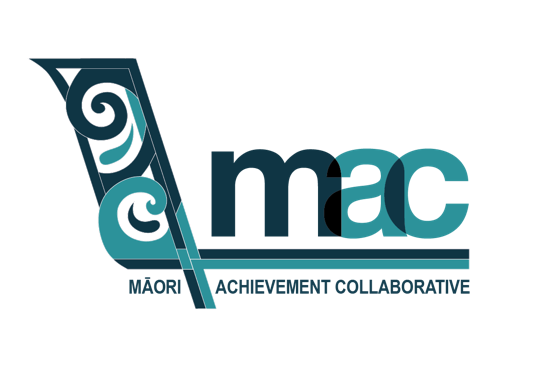Wānanga
BREAKOUT SESSIONS
On day three of our Hui ā Tau you have the opportunity to attend wānanga hosted by our MAC Kaihoe Mātauranga from around the motu.
There are a total of six wānanga, each with different kaupapa, you have the opportunity to attend three different 45min wānanga across the day.
Once you have registered, you will be notified when the breakout sessions are open for you to reserve your place at your selected options.
Please ensure you have registered for a 9:30am, 10:30am and 11:45am session.
Wenerei 18 Oketopa
Session Tahi: 9:30am - 10:15am
Session Rua: 10:30am - 11:15am
Session Toru: 11:45am - 12:15pm
Building Relationships with Marae, Hapū and Iwi
Abstract: At the core of iwi engagement is Whanaungatanga. Whanaungatanga is defined by Tātaiako as “actively engages in respectful working relationships with Māori learners, parents, and whānau, hapū, iwi and the Māori community”. The outcome for our kōrero is that you will have a clearer understanding of the prerequisites that kura should have when “actively engaging” with the Māori community.
DAMON RITAI
Te Ātiawa, Taranaki, Ngāruahine, Ngāti Ruanui, Te Ātiawa ki Te Tauihu o te Waka, Ngāti Rārua Ātiawa, Ngāti Koata, Ngāti Mutunga
Tikanga Based Te Reo Māori: Normalising Te Reo Māori at your Kura
Abstract: Some suggestions, tools and resources to grow Te Reo Māori from the base of normalised, every day practices supported by short deliberate acts of teaching. Using a set of tools and processes to get your kaiako and tamariki to be teaching and learning at the MOE level 4 Te Reo funding level. The focus is more for Englsih Medium settings, but ideas could support other settings.
Kia māori Te Reo Māori.
ANARU MORGAN
Kāi Tūāhuriri, Kāi Tahu, Kāti Mamoe, Waitaha
Graduate Profiles: Measuring What We Value
Abstract: What are the values we hold close to us within our kura? How are these values articulated through a Tiriti-Centric Lens?, How do we report and assess our values that our tamariki and rangatahi demonstrate in a meaningful manner?, How well do we teach them and make them come alive in our classrooms and pedagogy?
This breakout session we will look at successful practices in this area and will give you takeaways around building your capacity to assist in the designing of your Graduate Profile for your kura and hapori whānui.
PHIL GORDON
Ngāti Maru, Ngāti Hine
Māhere i te Huarahi Ako, Te Whare Tapu o te Ngākau Māori Resources
Abstract: An introduction to the resources that have been created specifically for the implementation of Te Whare Tapu o te Ngākau Māori within our schools. We will navigate how the framework fits into a classroom setting and how to plan units and lessons, using our Te Whare Tapu o te Ngākau Māori framework.
PUATAATA TIA-WARD
Ngāti Tūwharetoa ki Kawerau, Ngāti Whakaue, Te Arawa, Te RarawaEnacting Māori Concepts and Tikanga in Schools - Pōwhiri, Whakatau
Abstract: 'Shared kōrero me whakaaro around the deliberate actions required to navigate in this important and challenging space. An agreed start point, why, when, what, and who. The critical importance of growing capability in your kura, around understanding kawa, tikanga and normalising these as inherent organic processes within the kura. Ko te mea nui, ko te whakamana o te haukāinga
LINDSAY DUNN
Te Rarawa, Te Aūpouri, Nga Puhi
Co-governance: Tumuaki Case Study - Developing an Authentic and Genuine Relationship with Iwi and Mana Whenua - Whetū Cormick, Fiona Cavanaugh and Lisa Lowery
Abstract: Facilitating a kōrero with Fiona Cavanaugh (Queenstown Primary) and Lisa Lowery (Cromwell Early Learning Centre) about how they have engaged with iwi and mana whenua, and the mahi involved in developing a partnership in the governance space for their kura.
WHETŪ CORMICK
Tainui, Raukawa ki WharepūhungaFIONA CAVANAUGH, LISA LOWERY
